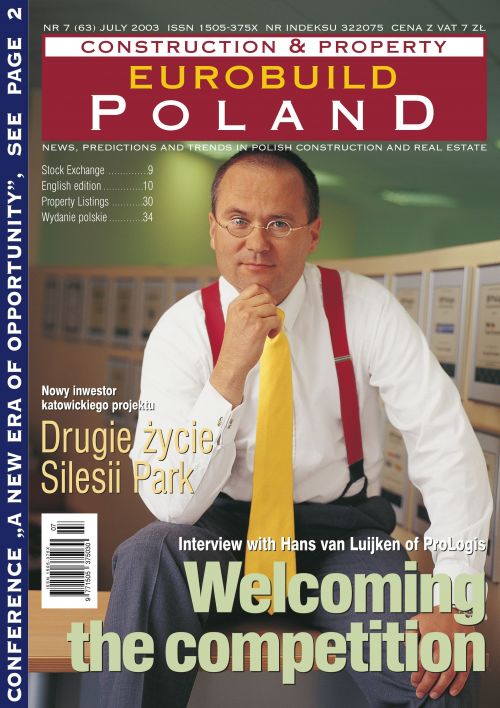Across the world there might be some time before it makes a
big impact, but in Poland the Euro is muscling in on the dollar. We've been
looking at why this is
In contrast to its Prague and Budapest counterparts, the
Polish real estate market has until now always conducted its transactions and
paid and collected rent in US dollars. To say that the Euro has pushed out the
American currency would be an overstatement, but a race is now on between the
two currencies.
Reshuffling
"I have here a list of thirty office buildings in Warsaw and only ten of
them continue to show their prices in US dollars," says Marcin Gudz, an
analyst at King Sturge. "Only a few months ago this would have been unheard
of. Now though, we even come across office buildings which quote part of their
rents in USD and the rest in Euro."
Alan Colquhoun of DTZ reminds us however, that there has always been the odd
building, such as Nadpol in Ursynów near Warsaw, which has not been quoted in
US dollars. "




























































